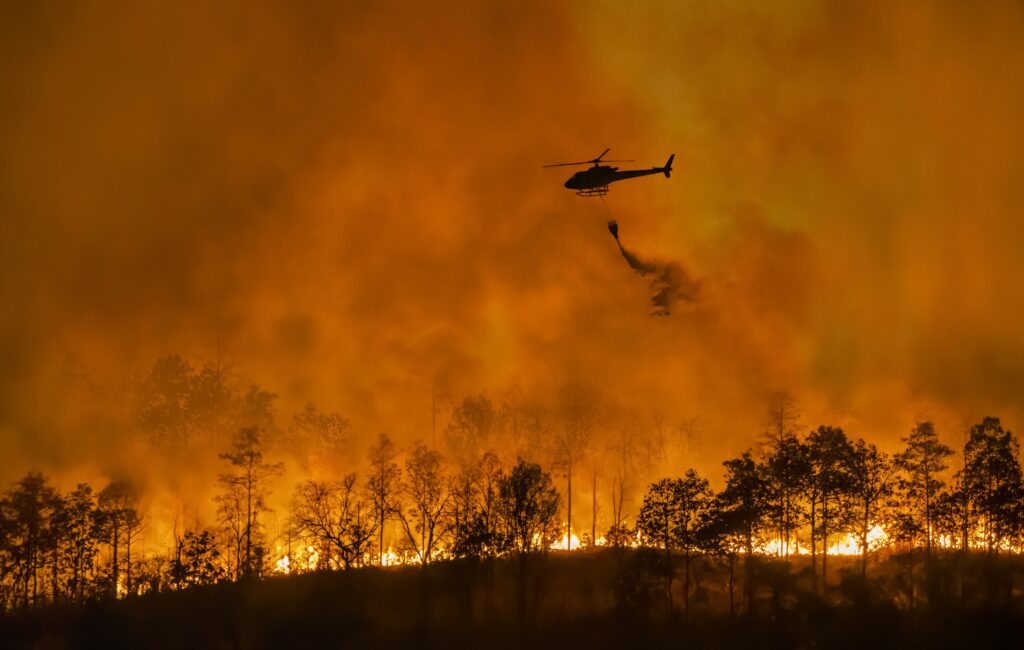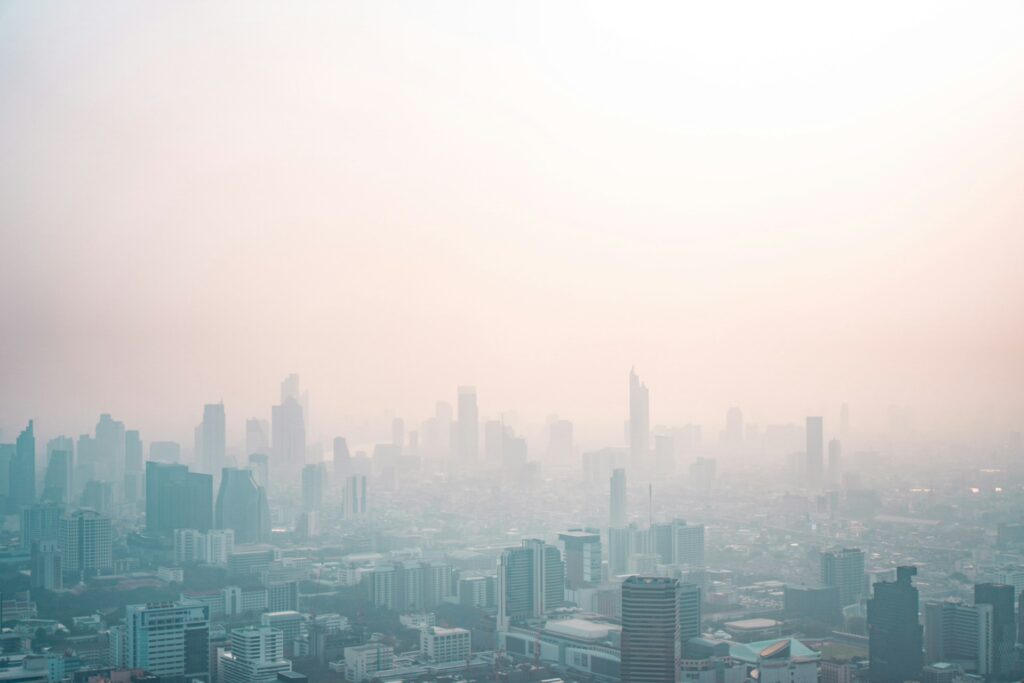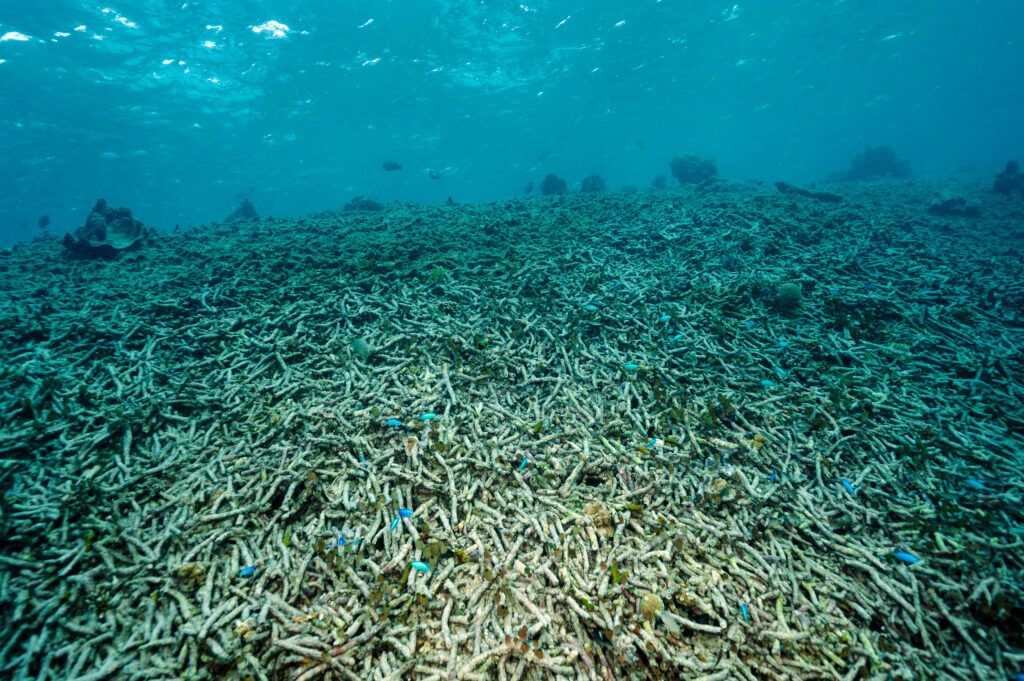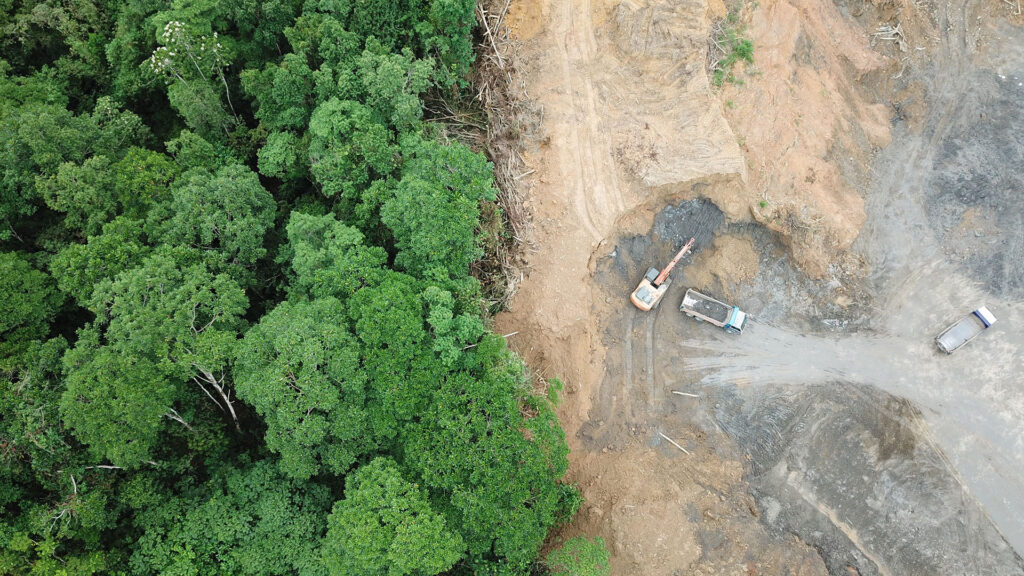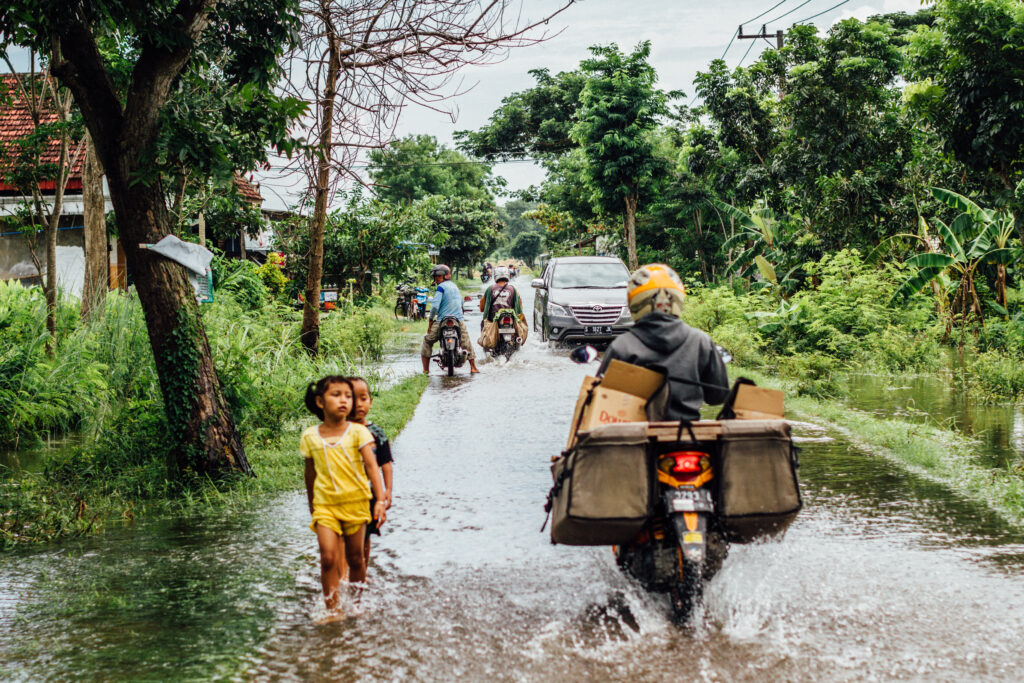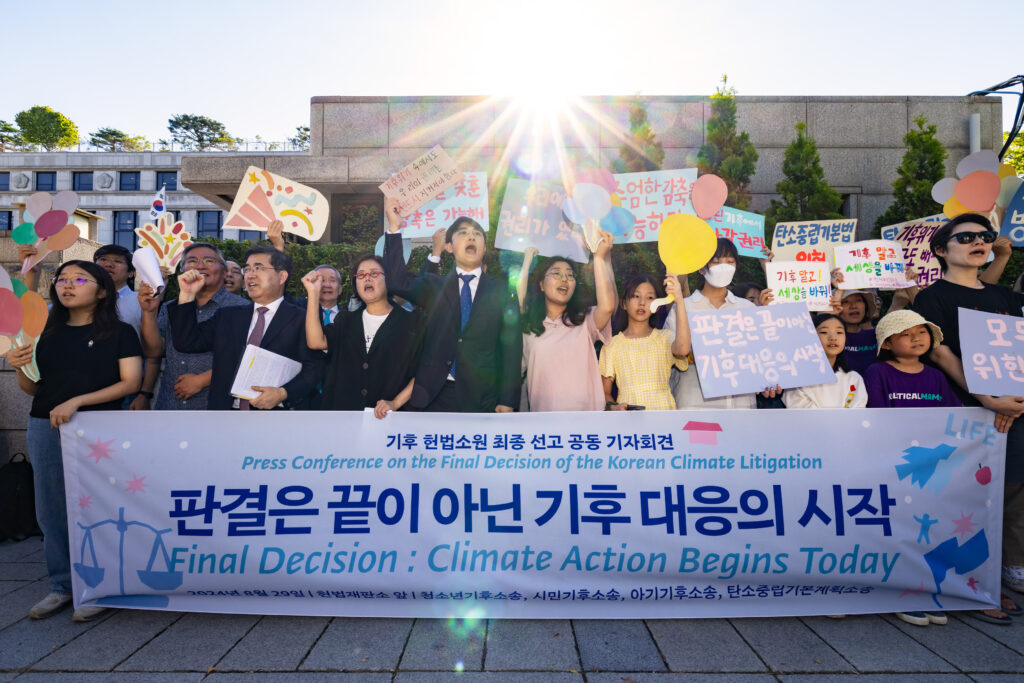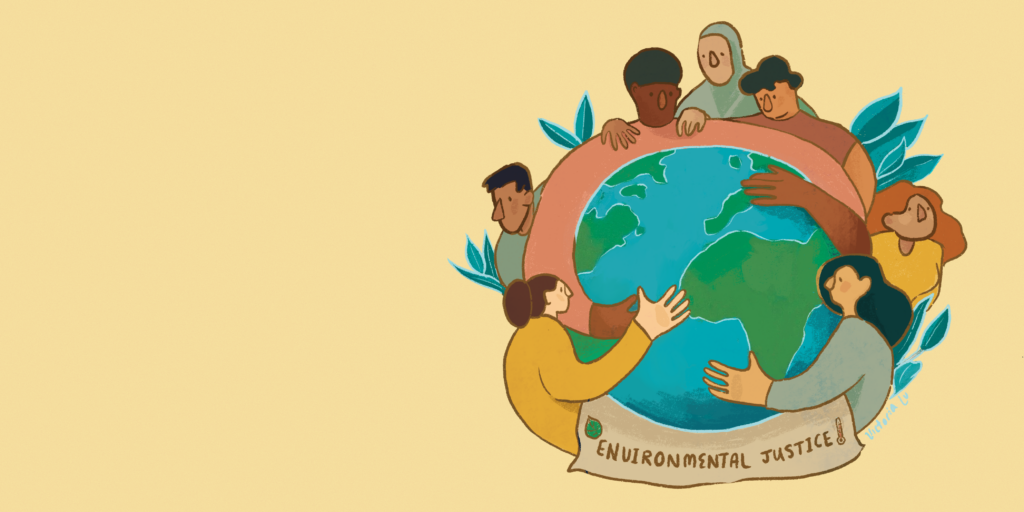Fashion is one of the world’s most polluting industries — and the practices of big fashion brands are under increasing scrutiny. A new report from Fashion Revolution, the world’s largest fashion activism movement, found that despite the escalating climate crisis, big brands’ reduction targets fail to meet the global goal of limiting temperature rise to 1.5°C above pre-industrial levels. With the window for meaningful climate action closing – coupled with dangerous and record-breaking heat waves – the industry faces a critical challenge.
Popular Luxury Fashion Brands are Responsible for 10% of Global Emissions
The fashion industry is responsible for a massive 10% of the world’s climate-polluting greenhouse gas emissions, with fossil fuels burned at every stage of production. Yet the report found that instead of investing in a just transition towards clean and renewable energy sources like wind and solar, luxury brands are shifting the costs onto the factories they work with, burdening workers and communities with fixing a problem they didn’t create.
“The fashion industry has made billions by exploiting the people who make our clothes and extracting immense wealth from the countries least responsible for climate breakdown,” the report read. “Big fashion must use its powerful economic influence to fuel the clean energy transition rather than placing greater burden onto their suppliers. Workers are already paying the price of climate change; it’s time for brands to cough up.”
Fashion Industry Carbon Emissions: A Systemic Lack of Ambition, Action and Transparency
The in-depth report, What Fuels Fashion, analysed and ranked 250 of the world’s biggest fashion brands and retailers based on their public disclosure of climate and energy-related actions. It found that nearly a quarter of the world’s biggest fast fashion brands disclose nothing on decarbonisation, signalling that addressing the climate crisis is not a priority. Only four out of 250 brands meet UN-recommended emissions reduction targets, with 17% even reporting rising Scope 3 emissions, thereby further hindering progress.
The report also found that 86% of brands don’t have coal phase-out targets, 94% have no renewable energy goals and 92% fail to set renewable electricity targets for supply chains. Additionally, 89% don’t reveal their annual clothing production, and almost 50% omit their raw material emissions footprint.
A lack of transparency was also ubiquitous. “We don’t know what fuels fashion, because the vast majority – 95% of major fashion brands and retailers – are not upfront about what fuels are used in their supply chains,” highlighted the report. The implication is that so-called sustainable clothes may still be produced using fossil fuels because the industry’s climate impact has largely been scrutinised through the lens of the materials used, rather than the manufacturing processes behind them.
An Industry Failing its Employees
Meanwhile, those working in the clothing industry are already suffering the harsh impacts of the climate crisis. The industry employs more than 300 million people along the value chain globally, with the production of cotton alone accounting for almost 7% of all employment in some lower-income countries.
However, escalating climate impacts are putting garment workers’ health and well-being at risk. In the first half of 2024, many of fashion’s largest manufacturing hubs in South and Southeast Asia suffered dangerous, record-breaking heat waves. Such extremes are becoming more frequent, longer-lasting and more intense. Yet, the industry is doing little to adapt.
With 1 million jobs in the sector at risk by 2030, the report highlights that most big fashion brands are failing to protect their supply chain workers. Just 3% of major fashion brands disclose their efforts to financially compensate workers affected by the climate crisis, it said.
Malish Godfrey, an artisan and refugee in South Sudan, contributed to the report to raise awareness of the challenges faced by people working on the front lines of the climate crisis. “The cycles of drought, heat, heavy rain that cause floods have become increasingly unpredictable and severe, causing hunger, disease and further displacement,” said Malish. Yet, faced with disasters, instability and food scarcity, Malish and her fellow workers live in fear of being unable to meet production deadlines and fulfill big international orders. “It is my hope that sharing my story will inspire others, including big fashion brands, to join us in taking action for a more stable and just world,” said Malish.
Urgent Steps for Big Fashion Brands
With the luxury fashion market and industry failing both the climate and its people, Fashion Revolution sets out clear actions for the industry to correct this. Big fashion must urgently provide compensation mechanisms for its employees impacted by the climate crisis “not as charity, but as a matter of justice”. This is critical given the weak social protection in garment-producing countries, the poverty wages and high debt levels of these workers, all of which are compounded by frequent climate events.
The report also calls for systemic change in the sector to address its massive climate impact. This involves long-term investments to decarbonise fashion’s supply chains, rather than prioritising short-term profit. To meet the scale of the challenge, big fashion brands must urgently invest at least 2% of their annual revenue in a just transition away from fossil fuels to renewable energy to power their manufacturing sustainably.
“By investing at least 2% of their revenue into clean, renewable energy and upskilling and supporting workers, fashion could simultaneously curb the impacts of the climate crisis and reduce poverty and inequality within their supply chains,” said Maeve Galvin, global policy and campaigns director at Fashion Revolution. “Climate breakdown is avoidable because we have the solution – and big fashion can certainly afford it.”
What Consumers Should Do?
Consumers can also play a key role, such as consciously using their purchasing power and not taking labels such as “sustainable” at face value. But ultimately, to meet the urgency of the crisis, it is imperative that the industry to enact change from within, and fast. The industry has the power to drive a clean, fair and just energy transition by embracing long-term supplier relationships and financial investments through fair purchasing practices. Crucially, this just transition must ensure the rights and livelihoods of its workers are protected, and not harmed, in the name of fashion.
Evelyn Smail
Writer, United Kingdom
Evelyn is a freelance writer and journalist specialising in climate science and policy, the just energy transition and the human impacts of climate change. She writes for independent publications, NGOs and environmental organisations. Evelyn has a background in sustainable development, climate justice and human rights.
Evelyn is a freelance writer and journalist specialising in climate science and policy, the just energy transition and the human impacts of climate change. She writes for independent publications, NGOs and environmental organisations. Evelyn has a background in sustainable development, climate justice and human rights.

